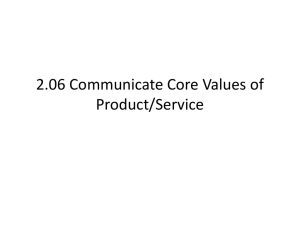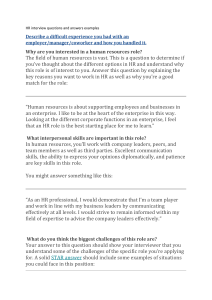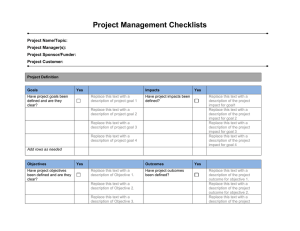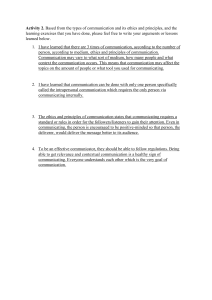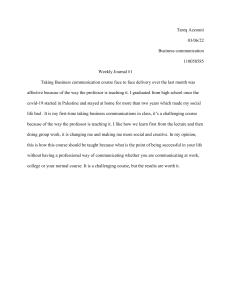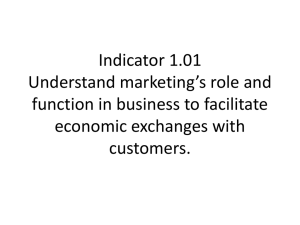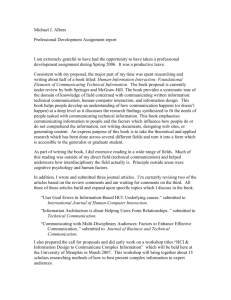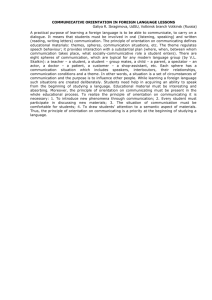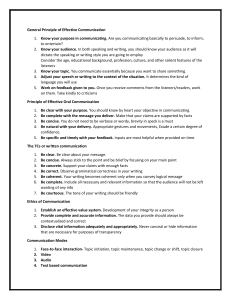Project Communications Plan Guideline
advertisement
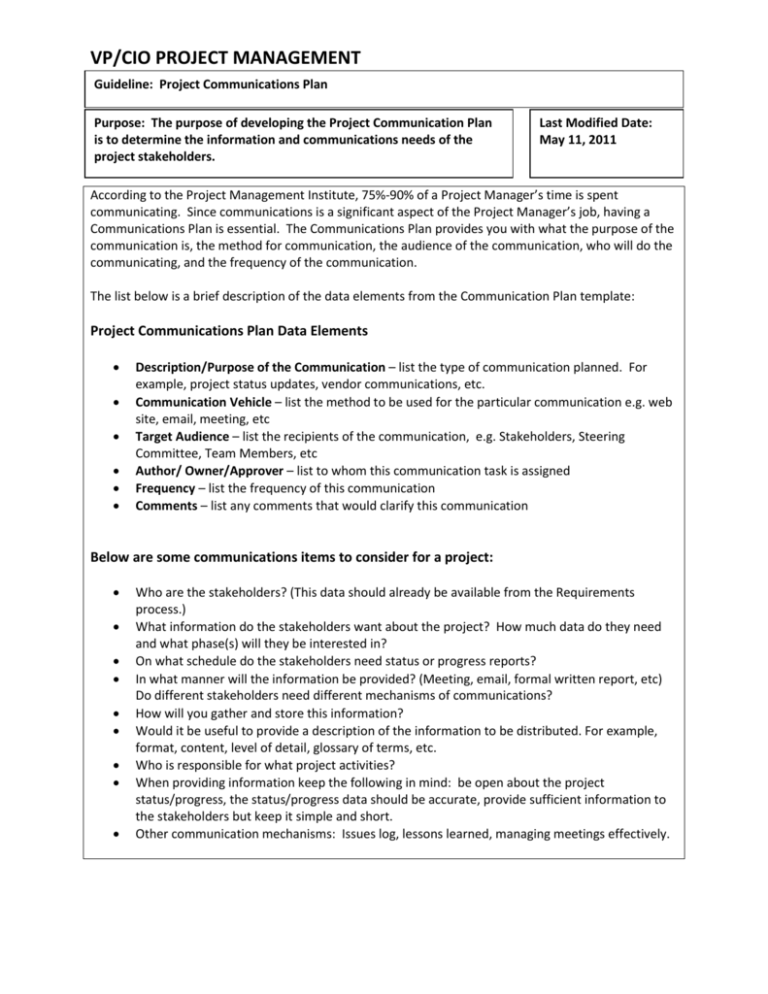
VP/CIO PROJECT MANAGEMENT Guideline: Project Communications Plan Purpose: The purpose of developing the Project Communication Plan is to determine the information and communications needs of the project stakeholders. Last Modified Date: May 11, 2011 According to the Project Management Institute, 75%-90% of a Project Manager’s time is spent communicating. Since communications is a significant aspect of the Project Manager’s job, having a Communications Plan is essential. The Communications Plan provides you with what the purpose of the communication is, the method for communication, the audience of the communication, who will do the communicating, and the frequency of the communication. The list below is a brief description of the data elements from the Communication Plan template: Project Communications Plan Data Elements Description/Purpose of the Communication – list the type of communication planned. For example, project status updates, vendor communications, etc. Communication Vehicle – list the method to be used for the particular communication e.g. web site, email, meeting, etc Target Audience – list the recipients of the communication, e.g. Stakeholders, Steering Committee, Team Members, etc Author/ Owner/Approver – list to whom this communication task is assigned Frequency – list the frequency of this communication Comments – list any comments that would clarify this communication Below are some communications items to consider for a project: Who are the stakeholders? (This data should already be available from the Requirements process.) What information do the stakeholders want about the project? How much data do they need and what phase(s) will they be interested in? On what schedule do the stakeholders need status or progress reports? In what manner will the information be provided? (Meeting, email, formal written report, etc) Do different stakeholders need different mechanisms of communications? How will you gather and store this information? Would it be useful to provide a description of the information to be distributed. For example, format, content, level of detail, glossary of terms, etc. Who is responsible for what project activities? When providing information keep the following in mind: be open about the project status/progress, the status/progress data should be accurate, provide sufficient information to the stakeholders but keep it simple and short. Other communication mechanisms: Issues log, lessons learned, managing meetings effectively.
